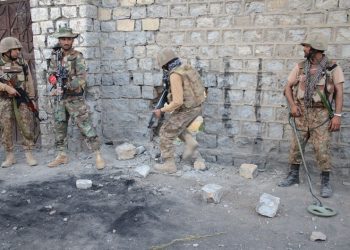Pakistan Peoples Party (PPP) Co-Chairman Asif Ali Zardari is tipped to win the presidential election as he has gathered the support of 345 electoral votes.
The PPP, which allied with the Pakistan Muslim League-Nawaz (PML-N) after the 2024 nationwide polls, successfully attained the support of 345 electoral votes for its nominee Zardari ahead of the presidential election slated to be held on March 9, the sources said.
PPP Chairman Bilawal Bhutto-Zardari was apprised by the committee members formed for the presidential campaign regarding the achievement in a briefing session ahead of the contest for the coveted post.
In the upcoming electoral event, Zardari will face Mahmood Khan Achakzai, chairman of the Pashtunkhwa Milli Awami Party (PkMAP), who has been nominated as presidential candidate by the Pakistan Tehreek-e-Insaf (PTI)-backed Sunni Ittehad Council (SIC).
The PPP’s veteran politician, who served as the 11th president from 2008 to 2013, has the support of the Nawaz-led party, the Muttahida Qaumi Movement-Pakistan (MQM-P), the Pakistan Muslim League-Quaid (PML-Q), the Istehkam-e-Pakistan Party (IPP), and others, is eyeing his second presidential term after replacing the outgoing president Dr Arif Alvi.
How president is elected by lawmakers?
The president is the country’s head of state and has the duty to “represent the unity of the republic.” The office holder has to be a Muslim who cannot be younger than 45 years of age and meets the qualification to be elected as an MNA.
The presidential election starts with the Election Commission of Pakistan (ECP) issuing a date for the poll — a process already completed by the top electoral body.
The president is elected via secret ballot in a special session of the parliament, Senate, and all four provincial assemblies under Article 41(3) of the Constitution, after the formation of the Electoral College.
As far as the number of lawmakers concerned, who would attend the electoral event, the Electoral College of 692 votes includes 96 senators, 336 Members of the National Assembly (MNAs), and 260 votes from the four provincial assemblies.















































